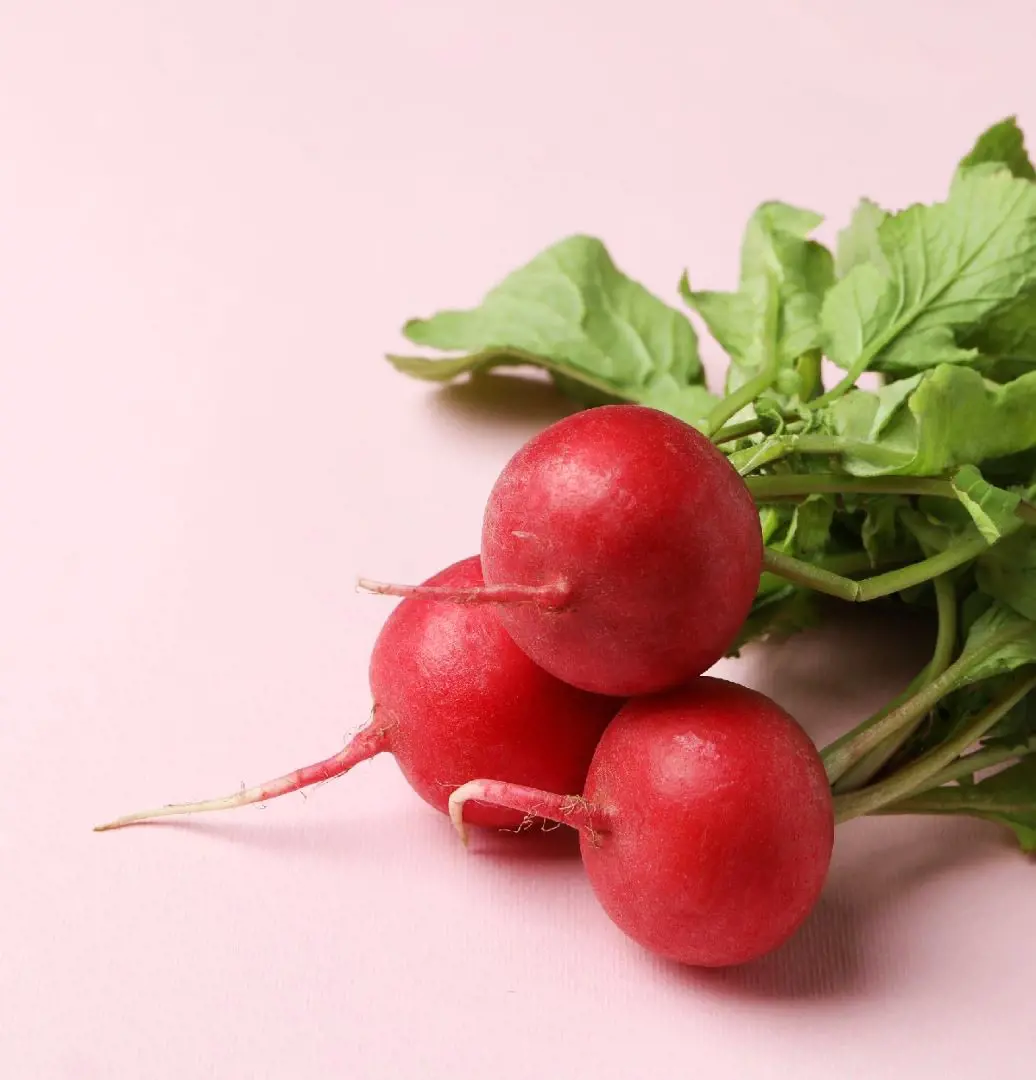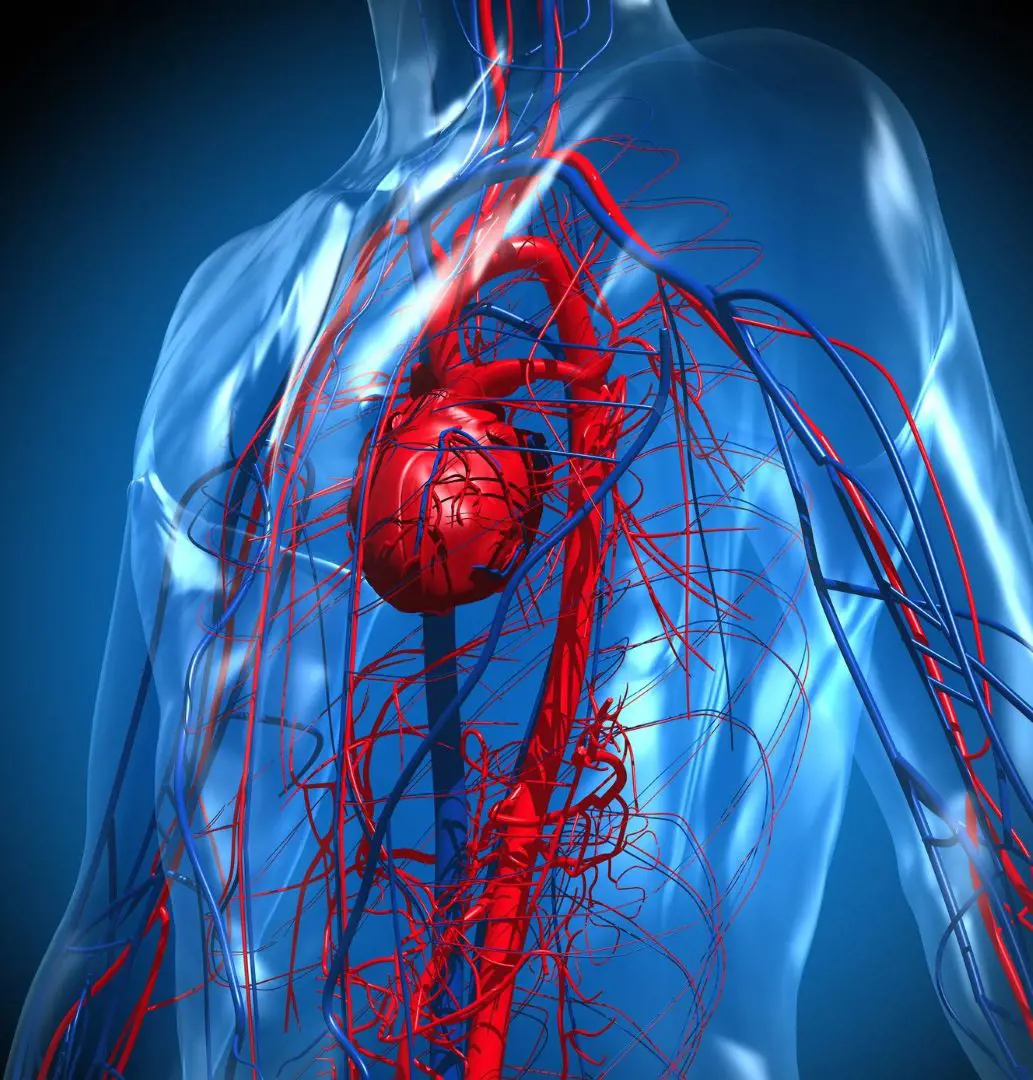10 Radishes Health Benefits And Nutrition Facts

This post may contain affiliate links. If you make a purchase through links on our site, we may earn a commission.
Radishes are root vegetables from the Brassicaceae family, akin to cabbage and mustard. They offer a crunchy, peppery taste that softens when cooked.
Rich in minerals such as calcium and potassium, along with antioxidants like vitamin C and catechin, radishes provide numerous health benefits.
1. Helps in Digestive Juice Production
A 1/2 cup of radishes provides one gram of fiber. Consuming some more servings on a daily basis will help you reach your recommended daily fiber intake.
A fiber-rich salad can be prepared using radish, strawberries, beetroot, and green mignonette lettuce. Radish leaves, in particular, are more useful for digestive health than vegetables.
2. Prevents Fungal Growth

Radish juice has enzymes like amylase, diastase, myrosinase, and esterases that can prevent any type of fungal enlargement in the body.
The juice is also fruitful in getting rid of harmful parasites, viruses, and toxins from the body. Despite the above enzymes, radish naturally contains antifungal properties that can halt the growth and spread of infection in the body.
3. Uplifts Liver Function
Radish juice contains certain compounds that are helpful in liver detoxification and recovery from damage.
The root vegetables assist in the production and flow of bilirubin, bile, acids, and enzymes that keep the liver and gallbladder healthy.
The bile produced by the liver is used by the digestive system to accumulate toxins and waste from the liver and remove them.
4. Supports Fluid Balance

Radish is an excellent source of potassium, providing 233 mg per 100 grams of radishes. This mineral helps to support effective fluid balance in the body by acting as a diuretic against sodium.
Some symptoms of sodium and potassium imbalance in the body are swollen ankles or fingers, an irregular heartbeat, extreme thirst, and others.
5. A Source of Sulforaphane
Just like other Brassica family vegetables like kale, broccoli, and cauliflower, radishes also contain a compound that can be converted to sulforaphane.
The phytochemicals rich in sulfur are beneficial for numerous reasons, such as reducing the risk of cancer. This is usually done by securing the cells from DNA damage and disabling carcinogens.
6. Encourages Cardiovascular Improvement

Radish, which is rich in antioxidants and minerals like calcium and potassium, is productive for the improvement of cardiovascular health.
The nutrient contributes to lower blood pressure and a reduced risk of heart disease. Also, being a good source of nitrates, radishes improve blood flow.
Radish contains anthocyanins, a flavonoid responsible for the red blood cells. This flavonoid is also responsible for keeping your heart pumping.
7. Has a Cooling Effect on the Body
The nutrients present in radish keep the blood flow under control and lower blood pressure. Traditional studies believe that radish has a cooling effect on the blood.
A powerful antioxidant, vitamin C also helps lower body heat. This cooling effect comes from the massively rich water content available in the radishes.
8. Secures Blood Vessels

Radish plays a crucial role in the production of collagen, which in turn enhances the blood vessels and reduces the chances of contracting atherosclerosis.
Atherosclerosis occurs when the body builds fat, cholesterol, and other substances inside and outside the artery walls. The buildup results in plaque, which can narrow the arteries and block blood flow.
9. Lower Risk of Diabetes
The chemical compounds, such as glucosinolate and isothiocyanate, present in radish are considered to regulate blood sugar levels.
As per some studies, radish provides energy and controls the amount of glucose the intestine takes. This root vegetable also contains coenzyme Q10, an antioxidant that is known to block the establishment of diabetes.
10. Contains Anti-Cancer Properties

Various studies have shown that radishes are a cancer-preventing food. The anticancer properties of radish can be derived from the mixed combination of antioxidants, such as vitamin C and other nutrients.
The peppery spice of radish can be linked to plant chemical compounds such as myrosinase, glucosinolate, and isothiocyanate.
Not just the vegetables, the leaves of radishes also contain antioxidants that might protect against liver, breast, colon, cervical, prostate, and lung cancer.
Nutritional Facts of 1 Cup Slices of Radish
Here is a nutritional breakdown of 1 cup of slices, or 116 grams of radishes, as reported by the U.S. Department of Agriculture:
- Water: 111g
- Energy: 18.6 kcal
- Protein: 0.789 g
- Fat: 0.116 g
- Carbs: 3.94 g
- Fiber: 1.86 g
- Sugar: 2.16 g
- Calcium: 29 mg
- Iron: 0.394 mg
- Magnesium: 11.6 mg
- Phosphorus: 23.2 mg
- Potassium: 270 mg
- Sodium: 45.2 mg
- Zinc: 0.325 mg
- Copper: 0.058 mg
- Fluoride: 6.96 mg
- Choline: 7.54 mg
- Lutein and zeaxanthin: 11.6 mg
Recent posts
Nutrition
Nutrition
Liquorice Root: Benefits And Uses
You can spell it liquorice or licorice; this herb or root has been in use for centuries in most medicinal applications, as a natural sweetener and to enhance flavors. Regarding its origins, it comes from the root of the "Glycyrrhiza galbre" plant and...
Nutrition
Is Ramen Healthy? Here's What Dietician Says
Ramen is a traditional dish from Japan that in the recent era has become a global phenomenon. This beloved and comforting soupy dish however has been questioned, when it comes to its nutrition. Best for those looking for a quick (instant), affo...
Nutrition
Is Wheat Bread Healthy? An Expert Picks
Wheat bread has been proudly celebrated as a dietary staple in countless homes for as long as people can remember. It has earned a reputation as a healthier alternative to white or any other processed bread, that no one can deny. Because of its evide...
Nutrition
Is Sausages Healthy? Nutrition And Health Benefits
Sausages are tasty in an addictive way, making them one of the most popular foods worldwide. You may have enjoyed this convenient food often, whether on a bun with mustard or grilled on a barbecue, the simple preparation methods are what makes its co...
Nutrition
Ice Cream Benefits: Nutrition, Potential Risks And Best Choices
Not gonna lie, ice cream is often taken as a guilty pleasure treat, a delightful treat that takes you to cloud nine but is frequently associated with negative health implications. Nonetheless, the happy news is when devoured mindfully, ice cream can ...
Nutrition
Is Sushi Healthy? Some Good and Bad Choices
Sushi is a wholesome meal and a beloved Japanese dish. The traditional sushi recipe is a simple combination of fresh fish, vegetables, and vinegared rice which is popular for its minimalistic preparation. As with any food, there are factors that dete...







